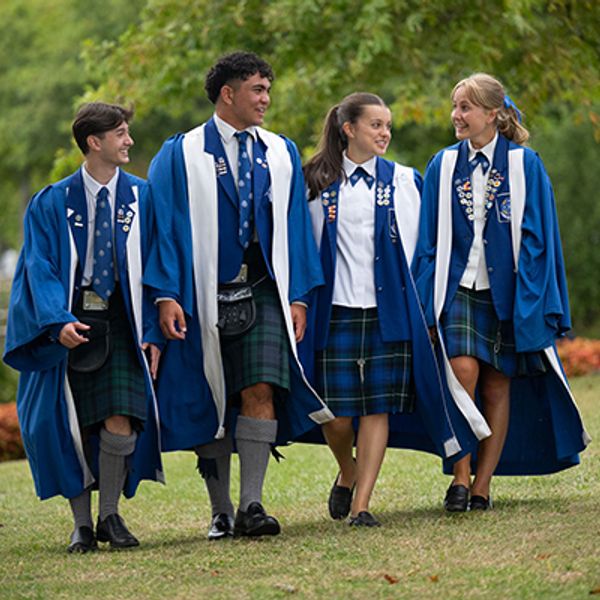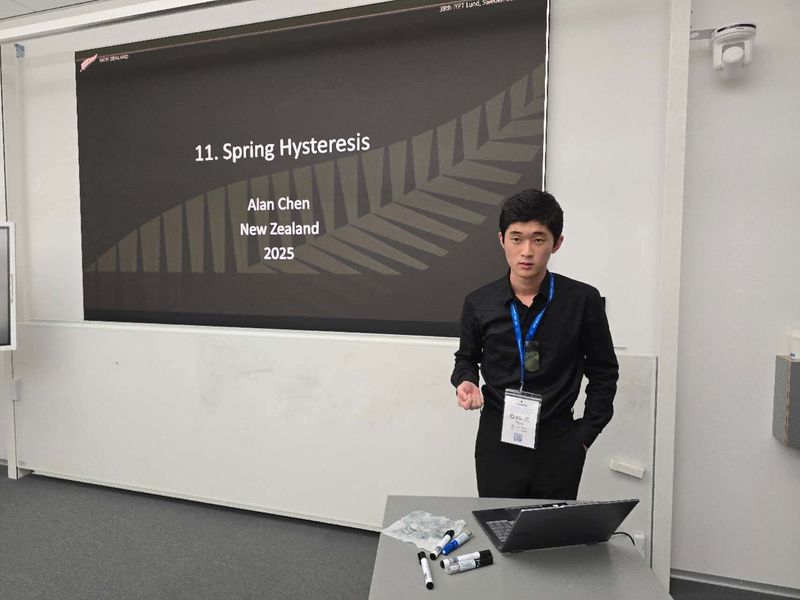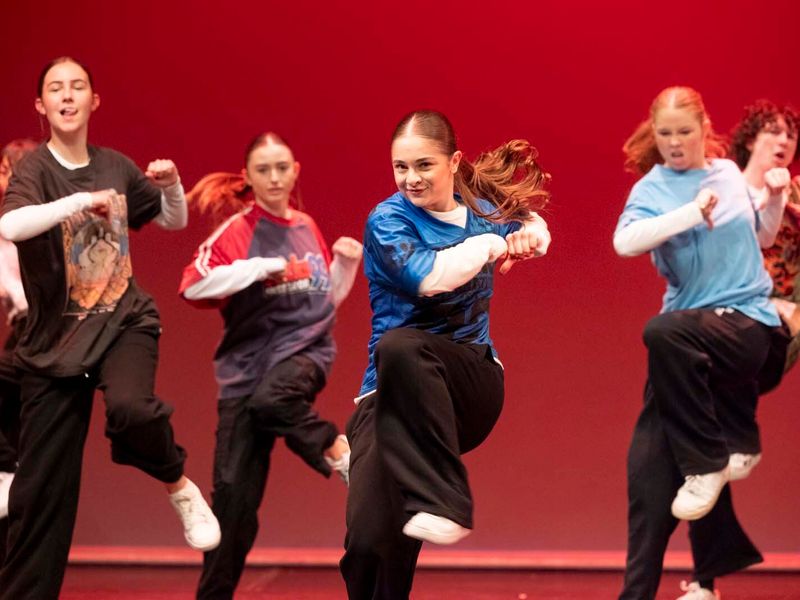
Play Series 3: Year 12 – King Lear and Metamorphosis
Play Series 3: Year 12 – King Lear and Metamorphosis
July 03, 2019 at 2:16 PM
NZQA Standard 2.6 ‘Perform a substantial role in a scripted play’
With thanks to Drama Teachers, Ms Naomi Wilson and Mrs Jess Acheson
The Year 12 classes performed excerpts from two plays, ‘King Lear’ by William Shakespeare and Stephen Berkoff’s interpretation of Franz Kafka’s book, ‘Metamorphosis.’
PLAYLET ONE: KING LEAR
Ms Naomi Wilson’s Class
In choosing class plays, I am always guided by the students I am working with. Early in the year, I get a sense of their different personalities and acting styles and begin to match our choice of plays accordingly. I love to work on ensemble pieces, so choosing King Lear with distinct characters and scenes was a risk, but I believe my group would handle it well.
My second guiding principle is challenge; what text will stretch this group enough that it will allow them to really develop as performers? This classic, and arguably the best of Shakespeare’s tragedies, offered just the right amount of growth for them, and the adaptation for a contemporary audience added to the challenge.
Lear is probably Shakespeare’s most symbolic play; the most iconic representation being the ever-impending storm which denotes Lear’s descent into ‘madness’. Even in the 16th Century this was such a frightening prospect it was too much to bear: Having divided his ‘Kingdom’ between the two daughters who tell him they love him the most, and banishing his third as well as anyone who defies him, Lear ultimately finds himself betrayed and alone. His arrogance has cost him everything and his fall from power is personally devastating. Those who try to side with him pay with their lives and the play, as is typical to a Shakespearian tragedy, ends in the death of most of the characters.
A 2018 ‘Mental Health and Addiction Inquiry’ conducted by the New Zealand government determined that big changes are needed to be made in our country as at least 20% of the population are dealing with some sort of Mental Health issue at any one time. Now in the public conscience, I wanted to explore this important part of being human with our students. My philosophy on Theatre is that it is transformative and should be used as an important and powerful tool for change and Shakespeare’s work lends itself to remodelling and reinvention.
This idea that supressed trauma or excessive stress could lead to Brief Psychotic Disorder led me to consider the Banking Crisis which informed my decision to set the play in 2008. Lear’s ‘Kingdom’ would be a high-powered Finance Company of which ‘he’ is the CEO/owner and the ‘heath’ he stumbles out onto in his descent to ‘madness’ would be an ‘occupy movement’, full of those protesting against his ‘kingdom’.
A question I come back to each time I read King Lear is ‘Where are the mothers?’ There is a distinct lack of maternal care in the play and I wonder what Shakespeare’s reasons were for only representing the fathers? Therefore, we changed Lear to a woman and imagined she was said CEO of the company. We considered the pressures she might have felt in this position, fighting in a ‘man’s world’, needing to not show ‘women’s weakness’, the decision over whether to have children and how she would balance her work with her family.
All of this led to us deciding that Lear had suffered a psychotic disorder after a period of high stress and so we bookended the play, showing her time in a Psychiatric ward. Our play was a fragmented and blurred version of reality as her brain struggles to identify truth and fiction. Some of the characters and moments are hallucinations. Her male counterpart is one of these, he represents her brain ‘giving in’ to the episode. Therefore, the genders of characters are mixed throughout the play – The Fool is played by a male and then a female as are Gloucester, Edgar and Edmund. We blend in moments from her ‘real world’ in the hospital to show the lucid moments she can briefly maintain.
I believe class plays should be a place for students to explore and experiment with ideas, concepts, debates and arguments, and should challenge their world view. In exploring mental health, gender and stress in this way, I hope the students have learnt something about the need to actively work on their own mental wellbeing in the same way they do their physical. I hope they have learnt something about mental health being temporary and treatable. I also hope they have learnt that Shakespeare is as relevant today as 500 years ago. Speaking out about Mental Health through any means, and unashamedly, is necessary if we are to tackle the stigma and encourage others to do the same.
Click here to view the 'King Lear' gallery
PLAYLET TWO: METAMORPHOSIS
Mrs Jess Acheson’s class
‘One morning, upon awakening from uneasy dreams, Gregor Samsa found himself, in his bed, transformed into a gigantic insect…’
How will his family react? What will his boss say? Who will feed him? Gregor, in this utterly catastrophic and illogical state finds his fate lies in the hands of his family, a devoted sister, and concerned mother and father as well as a truant of a boss.
The family responds in different ways and struggle to come to terms with his transformation. Feelings change, and as they move from a state of sympathy to horror we, as an audience look on wondering how sympathetic the world around us is when someone is different or identifies with ‘other’.
Franz Kafka, a German-speaking Jew from Prague wrote this dark surrealist Novella in 1915. We chose to explore Steven Berkoff’s 1969 adaptation with our open-minded and talented Year 12 Drama class. Not only is this unique piece of text physically challenging for a cast, it also explores a range of fascinating theatre forms which we delve into throughout the Senior Drama programme.
I felt this was the right time and right group of students to explore this metaphor of someone who cannot conform to societies norms. Gregor is ‘damaged goods’ and both Kafka and Berkoff were interested in exploring ideas of dehumanisation, alienation, isolation, racism, social inequality, apathy and waste in this political and moralistic comment on human life.
The themes connected to the feelings and changes young people face as they grow from adolescence to adulthood. Perhaps we are all in a state of metamorphosis, regeneration or deterioration?
Kakfa’s story hits a nerve that still resonates very strongly in 2019. It’s an astonishing piece of theatre that is both comedic and tragic, absurd yet seemingly rational and our students took these ideas on board and ‘owned’ their performance.
Well done to Year 12 on a fantastic night of theatre concluding this year’s series of plays!









